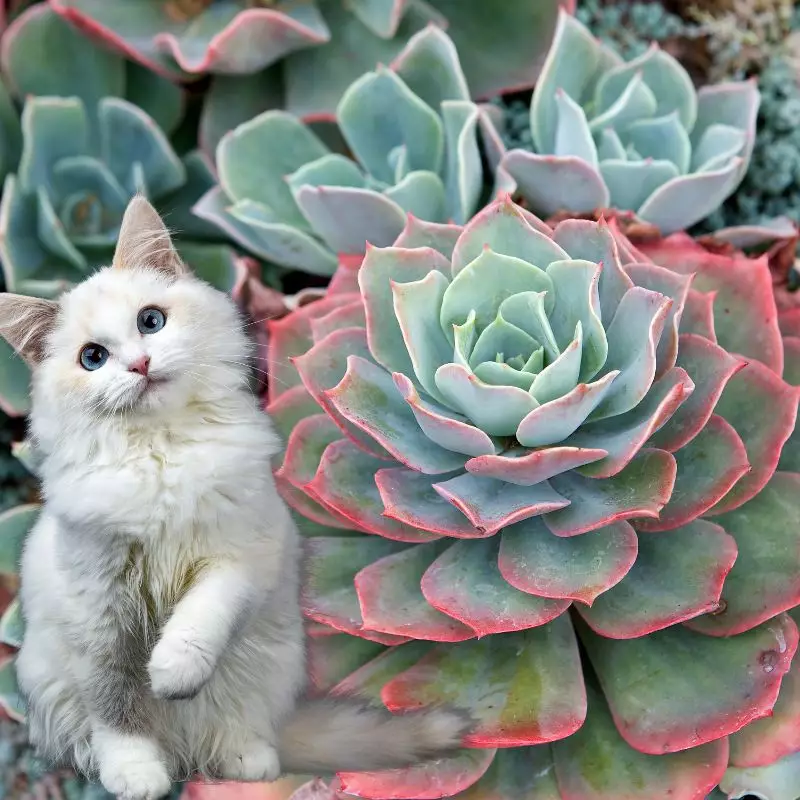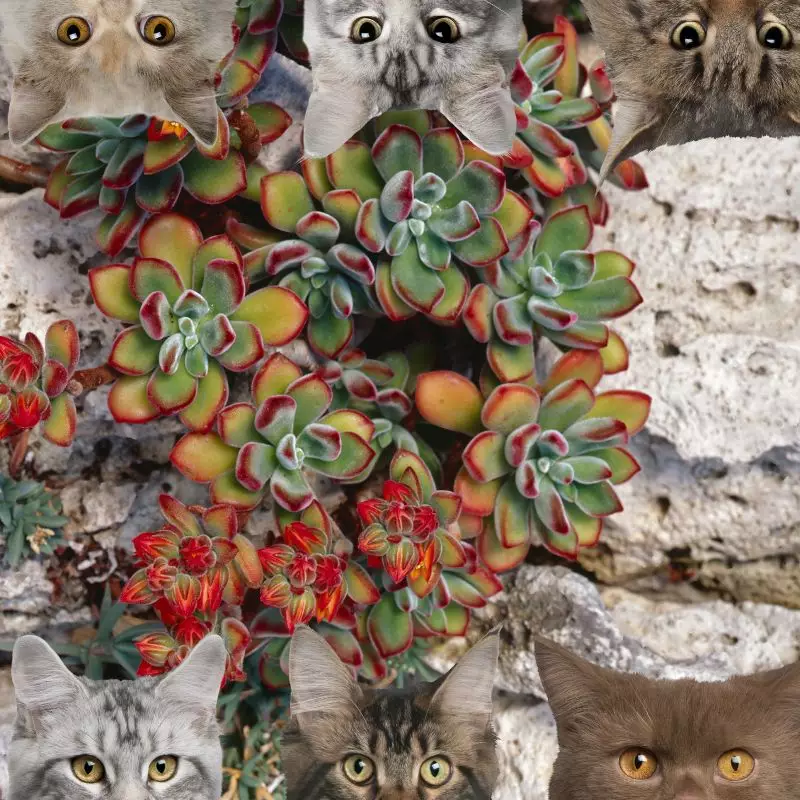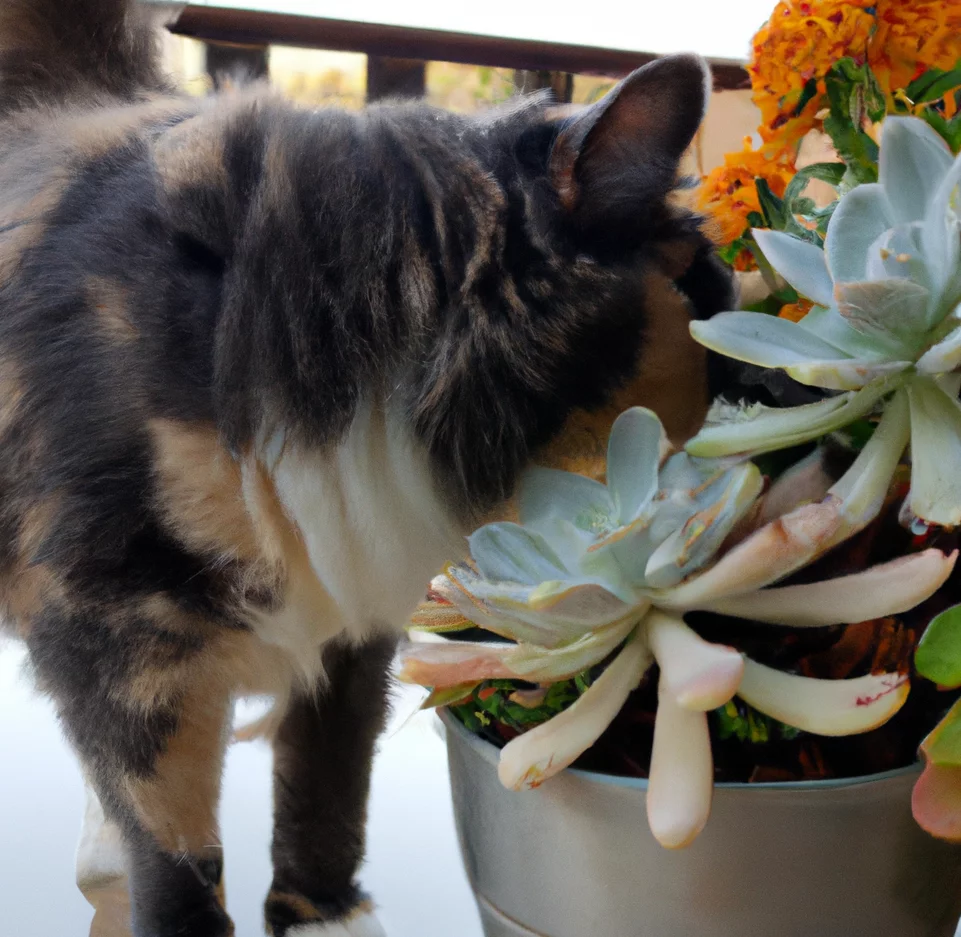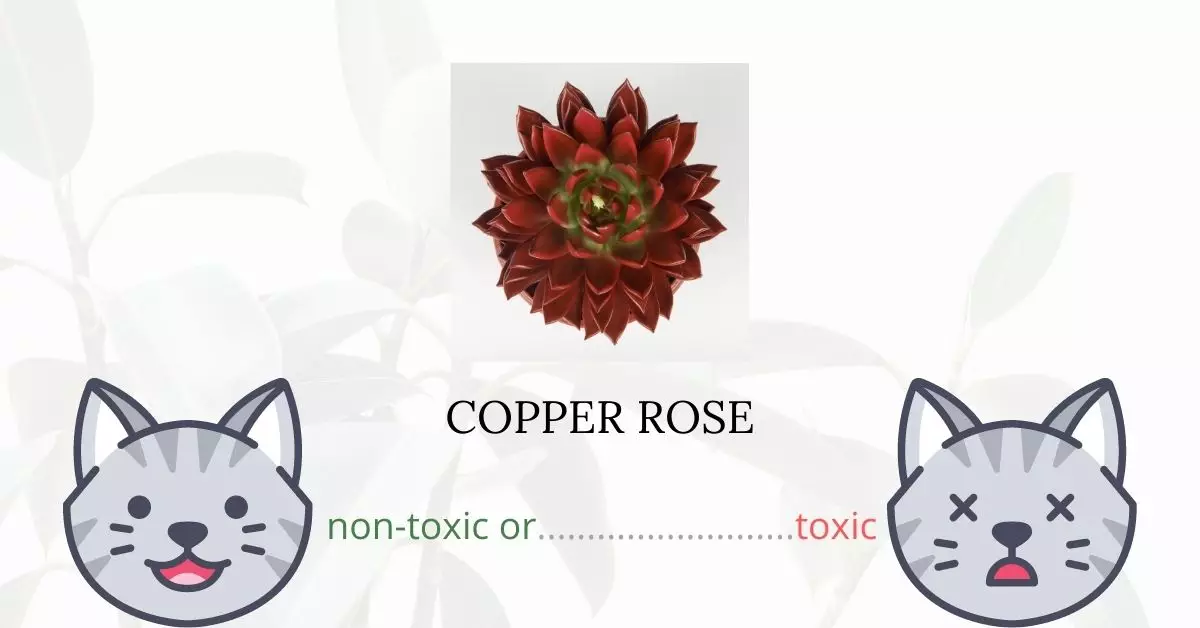Copper Rose is not considered toxic for cats.
This article has been crafted with the invaluable input from a team of experienced DVMs (doctors of veterinary medicine). With their expertise and our rigorous research, including referencing high-authority websites such as the ASPCA and PetMD, we aim to offer accurate and up-to-date information on the potential risks associated with various plants, Copper Rose in this case.
It’s worth noting that while Copper Rose is one of the most prevalent succulent varieties, the majority of its species pose no harm to both cats and dogs.
Can Cats Eat Copper Rose?

The copper rose is cat-friendly. It is non-toxic, therefore having them in your garden will not cause any problems. These are the rose-shaped succulents, which are both attractive and easy to care for.
It’s important to keep in mind that “non-toxic” does not imply “problem-free.” Because plants are not part of their regular diet, some cats may experience slight stomach discomfort if they consume them.
Also, as a cat owner, you should also practice responsible use of products on your plants such as fertilizers, pesticides, and deterrents. Any chemicals used on your plant may cause harm to your cats if they happen to ingest a portion of it with chemical residues.
What is Copper Rose?

Copper Rose is also known botanically as Echeveria Mullticaulis. It is a Mexican plant that is also known commonly called a copper leaf. It belongs to the Echeveria genus. As the plant matures, it should reach a height of roughly 40 centimeters (16 inches).
Green to dark green leaves with pink edges and tips are the most well-known feature of the plant. When it finally blooms, it will produce red flowers with a yellow-orange hue. This succulent species is one of a kind that blooms in the spring.
Keeping Cats Away From Copper Rose?

Cats are frequently let loose in the house, and it’s not uncommon for them to sniff around your lovely plant collection. If you enjoy indoor gardening and decoration, you might put your copper rose in open terrariums or even closed terrariums to protect both parties (plants and cats). Just make sure the container is substantial enough to prevent your cats from tipping it over.
You may also use natural deterrents on your plants to protect them from your cats. Make sure to always read the labels and check the ingredients before using any kind of deterrent on your plants.
Plants to Avoid For Your Cats
If you are a cat owner and unsure if the plants growing in your yard are harmful to your cats, check out this list of toxic plants for cats. You can also check our list of non-toxic plants for cats.





